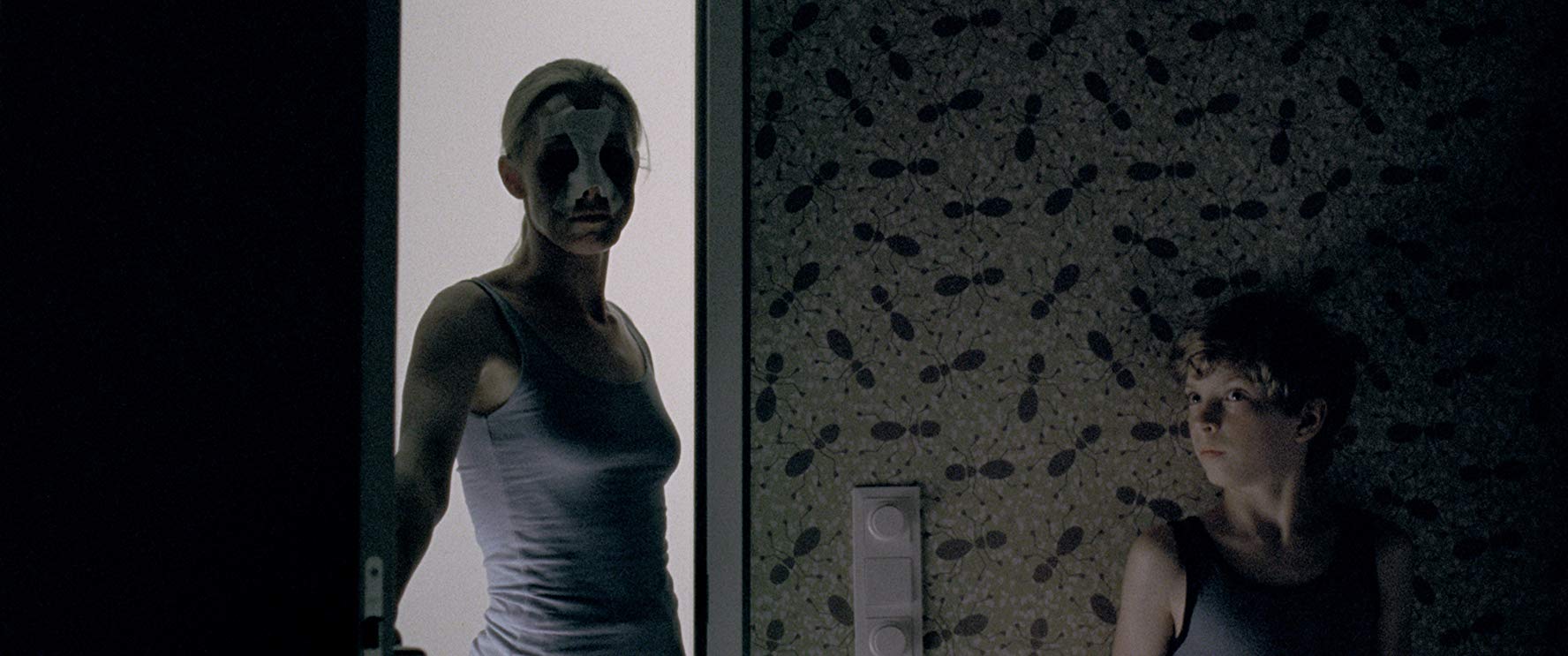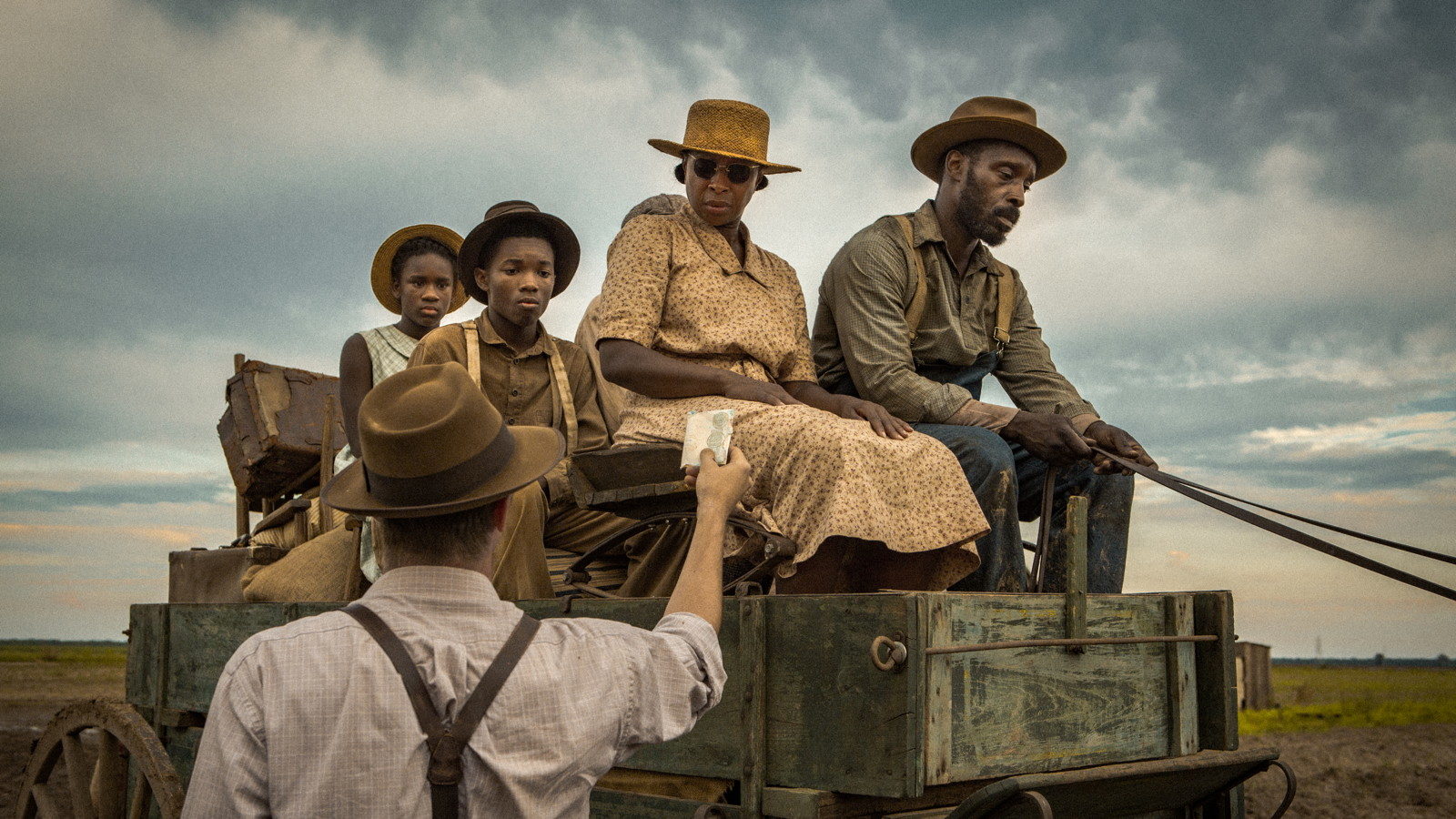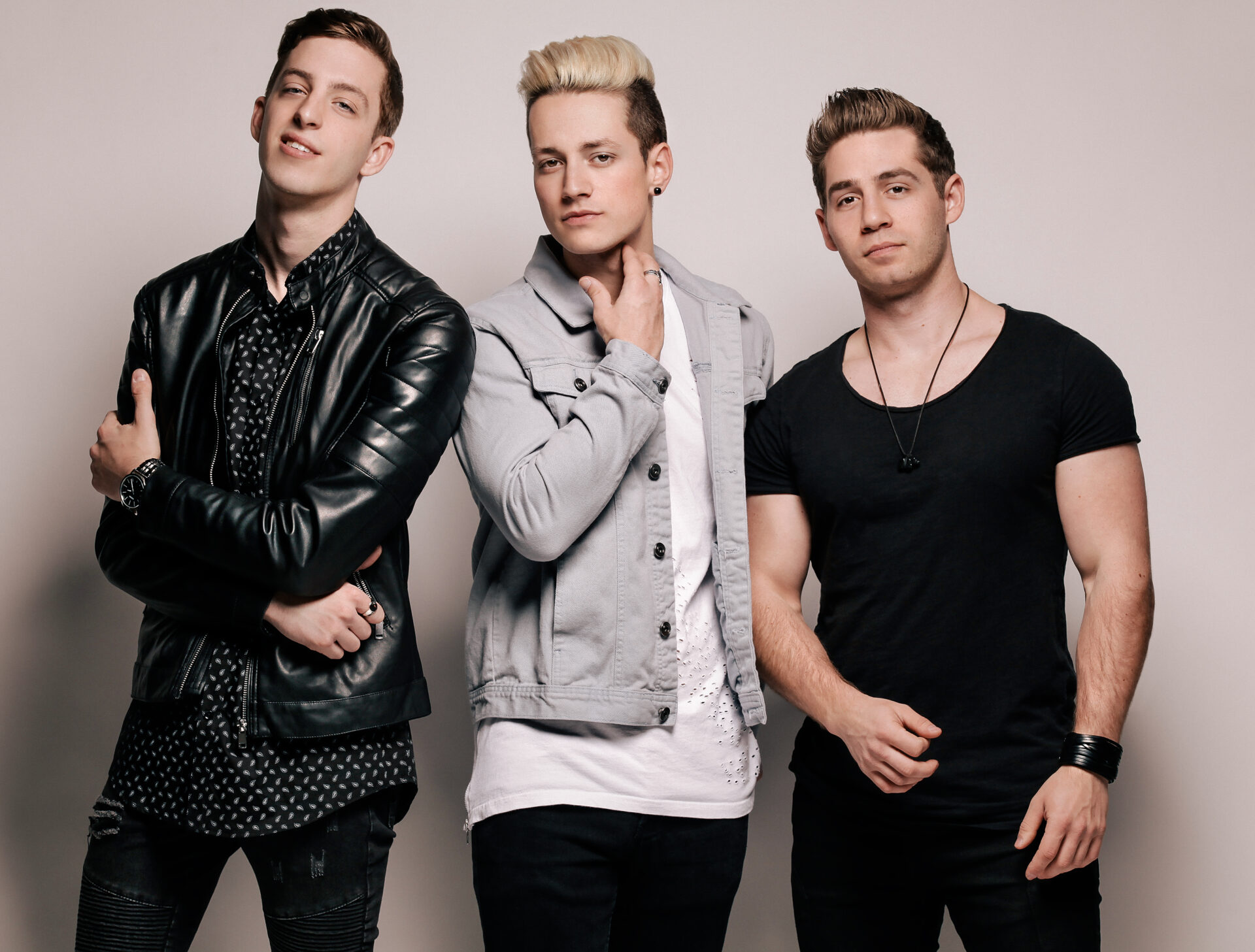Horror movies today are produced at a rate where the phrase “dime a dozen” doesn’t even begin to cover the obscene amount of titles out there. The “birth rate” so to speak, is so high that the genre has been split into sub sections such as horror comedy, meta horror, found footage, psychological horror, etc. I found myself wondering, at the heart of a truly great horror film, what is the emotion that ties them together. The answer was simple: anxiety.
The best kind of horror films aren’t the ones that leave you soul searching, but rather the ones that get your heart racing faster than two minutes on the treadmill after a year’s worth of inactivity at the gym. These kinds of movies really stick with you, because you try to convince yourself to let go because it isn’t real…but you just can’t. You cannot release your mental grip on the terror that is slowly burning away on screen. The directors/writers do a fantastic job at convincing you that you cannot look away as paranoia envelopes you. With that in mind, these are 10 Horror Movies That Induce Anxiety.
NOTE: These are spoiler free!

Photo: IMDB
The Invitation
The Invitation is a horror gem that is grossly underappreciated. It is a slow burner, but when it packs a punch it straight out bludgeons you. Director Karyn Kusama does an excellent job of visually composing of immediate tensity with Phil Hay and Matti Menfredi’s script. Our protagonists, couple Will (Logan Marshall Green) and Kira (Emayatzy Corinealdi) are invited to a dinner party hosted by Will’s ex wife, Eden (Tammy Blanchard). That alone sets the tone for an uncomfortable evening. However, it is through Kusama’s lens who masters the art of tension, mistrust and paranoia during Will and Kira’s stay.
Throughout the evening, Will loses himself briefly in flashbacks and bursts into accusations. He acts with such random aggression that the audience contemplates if Will is slowly losing his grip on reality. Guilt, forgiveness and mercy are big central themes that pull you in different directions which makes you reach your own suspicions and doubts. Your own skepticism makes you anxious as you are sucked into Will’s fight or flight attitude. In return it traps you in the tug of war of reality vs paranoia. The film is a slow burner which revs up the unease, but it is in the final fifteen minutes that leaves you feeling cold.

Photo: IMDB
It Comes at Night
It Comes at Night was a box office bomb due to false promotions that promised a nightmare fueled creature feature set in the woods. These expectations were were not met and the film was left in the dark as a mediocre film. However, It Comes at Night was a decently crafted film. It followed paranoia, processing of grief and protecting family under a dynamic shift. Hence why audiences were upset at not seeing the trope of fending off a creature in the middle of nowhere.
In an undetermined location and time, we are introduced to a small family; Paul (Joel Edgerton), his wife Sarah (Carmen Ejogo) and their teenage son Travis (Kelvin Harrison Jr.). They are quietly inhabiting a house in the woods while a mysterious ailment wrecks havoc on the world. They seem to have adjusted well by keeping disease at bay by Paul’s strict codes. Eventually this peace deteriorates as a couple and their young son show up at their doorstep. Paranoia and doubt makes itself at home faster than the new family can while asking for sanctuary.
It is hinted that civilization has collapsed outside of their home. Instead of providing help towards one another, humanity has sunk into feral determination of protecting what is theirs. It is unsettling to watch this unfold while Travis is emasculated continuously by his overprotective father. He bears through the pains of puberty while coming to terms with death of loved ones in an apocalyptic setting. In a way, it reminds us what it means to be human as we watch the effects of tribalism vs humanism in the disintegration of society against an unseen enemy.

Photo: IMDB
It Follows
It Follows brilliantly showcases the rule of “less is more”. David Robert Mitchell’s direction and script induces pure paranoia by giving us a creature that only the protagonist can see as it wears an interchangeable human face. Cutting quickly to the plot, Jay (Maika Monroe) goes on a date with a seemingly nice guy, Hugh (Jake Weary). Hugh acts strangely after he points out a girl that Jay claims she cannot see. Later Hugh has sex with her in his car and knocks her out. Hugh warns Jay that she has been passed on a malevolent spirit in human form by their sexual encounter. It will kill her unless she herself passes it along, by having sex with someone else. To verify this, Jay claims she sees a naked woman walking towards them, but Hugh cannot see her.
On paper and out of context it sounds silly, but It Follows does a solid job of keeping your eyes wide in suspicion during the entire movie. This simple plot commands your gaze to shift around every background in each frame, trying to find if “IT”. Jay spends the film with wide eyes, whip-lashing her head wildly around to see if anyone might be walking towards her with malicious intent. We mirror her fear, her paranoia and lack of unease. That same stab of fear that thrills Jay from head to toe hits us when someone in the background slowly inches closer. The audience cannot rest until she does, until her fight to stay alive has been achieved. We are in this together with her.
David Robert Mitchell amplifies this increasing unease as a background extras walk towards the lens of the camera. The focus of the camera is always moving to follow Jay and her friends instead of following the extra, who may or may not be the creature. We want to scream for her to run, but we notice other people who look suspicious. By the film’s end, the audience is so tightly wound up from searching the screen that it makes the terror that much more real.

Photo: IMDB
Goodnight Mommy
Goodnight Mommy is a German film that didn’t get enough recognition during its initial release. This creepy flick focuses on twin brothers Elias (Elias Schwarz) and Lukas (Lukas Schwarz) who are under duress that their mother isn’t who she says she is. Without giving too much of the plot away, Elias and Lukas’s mother (Susanne Wuest; credited as “Mother”) comes home after some time away in the hospital for facial plastic surgery. Immediately, the brothers suspect this woman may be a creature in the body of their mother.
All the while Mother is home, she is tense, angry and lashes out while ignoring Elias and favors Lukas. There are many brooding shots of her watching the boys from behind doors/windows. The creepiness is escalated with shots of her eyes or her tightly wrapped face. This helps amplify the audience’s suspicions that this woman is not who she claims to be. With her behavior growing erratic and distant, we cannot help but think the paranoid fantasy of a monster in their house may be their chilling reality. The film is well shot and unsettling household portraits and pictures in the background only feeds our doubts.

Photo: IMDB
10 Cloverfield Lane
This is a decent movie that gets a bad wrap for it’s unfavorable twist ending. Reviews and casual audiences alike either love or hate the ending, but that doesn’t change the film’s terror. Most of the film takes place in a snug underground bunker with three people; Howard (John Goodman), Michelle (Mary Elizabeth Winstead) and Emmett (John Gallagher Jr.). For the first hour of 10 Cloverfield Lane, director Dan Trachtenberg expertly commands your attention to small lingering shots of what seems to be at the time to be meaningless objects that later fit into a puzzle of the events to come.
Michelle wakes up chained in this bunker after getting into a car accident where she meets her captor, Howard. He informs Michelle and other captive, Emmett that he saved their lives. They cannot leave the bunker, because the world above has become inhabitable. He tells them this bleak information with vague details. As Howard becomes more volatile, there is a air of uneasiness that quickly settles in. His irrational behavior makes it hard to believe that he is telling the truth.
Howard’s dominating and abusive demeanor carries on by being jealous and lacking empathy when things don’t go his way. His restrictive control mirrors that exactly of an abusive relationship. We watch uncomfortably as Emmett and Michelle are stuck in this unwanted relationship with Howard. They believe there is no way out and they owe Howard for “saving them”. After each offer of compassion and violent outbursts, we shudder at the notion if the peril lies outside or within their claustrophobic confinement.

Photo: IMDB
Mother!
Personally, I’ve had a hard time watching this film and it wasn’t due to the writing, acting or plot. Darren Aronofsky’s ability to maneuver his protagonist’s uncomfortability and unheard pleas for help were painful to the point that it drove my anxiety through the roof where I almost had to turn it off or felt the need to walk around my apartment to calm myself down. If that doesn’t mark as a great thriller/horror then I don’t know what would.
Mother! is a very uncomfortable film not only because of Jennifer Lawrence’s titular character fumbling to be heard in such dire circumstances, but also because the film creates this subconscious attention of how human beings are insatiable. There is no end to our desire for consumption. Mother is continuously thrown into violent and uncomfortable situations. The viewer cannot do anything, but wish for her to be more defensive or proactive. We want to scream for her to leave such a volatile environment, but alas we are confined. Every act is painful as we watch her discomfort, rage and tears as she suffers through humanity’s gluttony.

Photo: IMDB
Jacob’s Ladder
If you haven’t seen Jacob’s Ladder, then I highly recommend you go and rent this 1990 classic. This film greatly inspired the horror game franchise, Silent Hill which alone speaks enough of the horrors that transpire during this intense psychological thriller starring Tim Robbins. The title of the film refers to the Biblical tale of “Jacob’s Ladder”, where there is a meeting place between Heaven and Earth in Genesis 28:12. In context to the film, this metaphysical “Ladder” is where the afterlife connects with the finite life of the living. Jacob (Tim Robbins) is a Vietnam Veteran who spends the duration of the film jumping back and forth between his memories in the war, his life with his ex wife Sarah (Patricia Kalember) and child as well as his ‘reality’ with his current girlfriend, “Jezzie” (Elizabeth Pena).
The storytelling does a good job of making everything- including the timeline – incoherent. There are flashes of demonic faces, car chases, subway creatures and festering hallucinations. It begs us to ask not only, “what the Hell is going on?” but also “which life is real and which is false?” The film balances our curiosity on the ledge of insanity which keeps us on our toes. As the story carries on we hold onto the paranoia that nothing is as it seems. Even when there is a calm and unprovoked scene, we are still tense right up until the final shots. The ending is one of the most heartbreaking yet spiritual revelations in horror film history and it is a must see.

Photo: IMDB
Get Out
Jordan Peele’s instant classic Get Out will be popping up on every horror movie “best of” lists for the next foreseeable future. Never has there been – in recent history – such a race-savvy horror satire that dropped a bombshell in the film industry. Peele strode into the horror genre without any fear or hesitation (minus the change to the ending) to deliver both frights and awareness to his audience. We watch uncomfortably as Chris (played brilliantly by Daniel Kaluuya) who upon wanting to be respectful to his white girlfriend’s family is obliged to smile through sentiments similar to “I’m not racist because…”.
His only way of grasping at the reality of the situation at hand is to ask his girlfriend Rose (Allison Williams), who tells him he’s reading too much into things and calling his friend Rod (Lil Rel Howery) who is hours away about his paranoia and anxiety about all the over friendly odd conversations. With that, Peele exposes the true unsettling reality that the African American community can never breathe easy even when they do succeed in a win. It is a harsh truth that anyone doesn’t want to face, but Peele forces that knowledge to sink in.

Photo: IMDB
The Descent
What would you do if you were trapped underground and the only way out is to descend further down into the dark unknown? The Descent asks that question in this creature flick while also bearing the weight of man vs nature. While we watch the female cast travel further down into literal darkness, we also watch them surrender to fight against nature. This includes dwindling oxygen supply, claustrophobic spaces and treacherous and unmarked terrain.
While these are dangerous obstacles, there is a more sinister and hungry force lurking within each shadow. We are aware of the dangerous creatures lurking in the caverns and like the women, we cannot see ahead. Director Neil Marshall helps induce the claustrophobia and anxiety by giving the characters restricted light source by ways of helmet lamps, flares and so on. Our visibility is as restricted as much as theirs, so when there is a quick shuffling noise we are reduced to our worst fears. Was that sound of a natural rock slide or was it due to a creature trying to scurry by undetected? We aren’t given a clear scope of the danger ahead, nor is there hope of an actual light at the end of the tunnel.

Photo: IMDB
[REC]
While The Blair Witch Project kicked off the genre of “found footage”, [REC] instantly revived the series for the 2000s. Yes, Paranormal Activity came out the same year, however it is [REC] that really manages to drive its hooks into you. Paranormal Activity spends it’s running time focusing on jump scares while watching through a camcorder lens, whereas [REC] grabs you by the neck and throws you into it’s fast paced terror of ‘there is no where to go’.
The film does an excellent job at setting an anxious mood when we arrive at the apartment building. Our nerves are immediately stretched to its limits at the first encounter and everything goes downhill from there. Chaos breeds disorientation that is soon followed by panic and irrationality. All of which is expertly crafted in this film. The action happens in narrow stairwells, small hallways and the buildings utilities are shut down. Which means there is a lack of lighting to see what exactly may be lurking around the corner.
Like any other traditional horror movie, the audience would be circling the perimeter with the police or bystanders. Information would be made aware to us via the likes of FBI or CDC showing up. Instead we only get as many answers as the trapped tenants film crew does. We are given no answers and only the outsiders have the explanations and there is no access to them. We, like the ill fated character are only able to see what we cannot comprehend; that there is no escape, no where to hide and no exit strategy.

Photo: IMDB
HONORABLE MENTION: THE ENDLESS
Filmmaking team of Justin Benson and Aaron Moorhead—whose specialty is in meta-horror — teamed up again for their second movie, The Endless, a film that tinkers with time, reality and Lovecraftian cosmic horror. Benson and Moorhead do a fantastic job of giving the audience only skeletal outlines and leaving the details to imagination. They depict just enough to leave you full of anxiety about where the story turns to next.
We follow Justin and Aaron (who play themselves, but as brothers) as they return to a UFO cult camp site; Camp Arcadia. After a decade of escaping the cult, Aaron convinces Justin to return in order to regain closure. Upon arrival, they notice things are exactly the same… as in nothing, not even the members have aged a day. As Justin becomes distant from this ageless notion with witnessing a few things that defy the laws of physics, the brothers split off into their own perceptions. It becomes a battle of anxiety driven gut feelings vs ‘what does it matter if you feel at home’? It is a clever take on the trope of cult brainwashing. They are isolated from each other emotionally as their ability to distinguish delusion from reality falls apart.
As we follow both the dreamer (Aaron) and the realist (Justin), the audience begins to feel anxious and discomfort. We want have our own opinions on what we believe is real, therefore we choose between Aaron and Justin. We follow both brothers and see with them the possible and impossible. Therefore as the brothers argument about reality, we are now locked in this discussion with them. Is Justin’s paranoia a response of being back at a place that once traumatized him? Or is Aaron reacting irrationally due to psychological conditioning by the cult?













